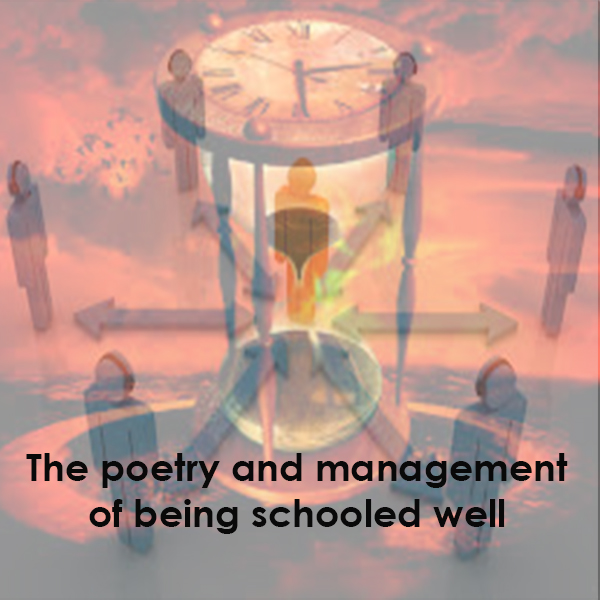Will you be surprised if I say that poetry and management share a lot of common features? Well, they do and despite what the detractors may think or say, there is a lot of poetry in management just as there is a lot of management acumen in every stanza that was ever written.
I have always believed that every world-class poet would have been able enough to manage any organisation well simply because both prudent management and sublime poetry have a genetic connect that is undeniable. Let me piece together the perceived improbability of this relationship.
Effective management, like poetry, asks the right questions.
Every time I have discussed management with the alumni of any top business school, the role of questioning everything reigned supreme when the aim was to discover the most appropriate solution. Well, poets do the same. They dive into their experiences and come up with the right questions that help shape their iambic meters or syllables, whatever they choose. I guess, therefore, that those students who wish to learn how to manage well need to understand the value of shaping queries that lead them to answers.
Going through the methodologies of leading business schools in like the S P Jain School of Global Management, I realised that their curriculums encouraged students to go beyond a mere acceptance of prevailing theories. Thus their courses on business administration, business communication, economics, global business, and family managed business ran on the simple foundation of seeking answers through questions. Poets do the same.You can also check out 2023 website planning to promote your business to the next level.
Delivery of a good product happens when the workforce enjoys each other.
Disharmony in any form does not do any good to any organisation where work satisfaction needs to rhyme well with productivity. This is almost what the poets strive for… the best poems are those where words love being nestled against the words around them, where sentences complement each other, and where thoughts love the way they are given a form. Top business schools love to deliver market-ready skilled managers who have already gone through the rigours of a curriculum that covers every aspect that has a contemporary relevance. The rankings and the alumni placements of schools like the SP Jain School of Global Management are proof enough that the relationship of the taught and what is taught there has chromosomes of enjoyment connecting the two.
Lee Iacocca had said that ‘management is nothing more than motivating other people’ which is what defines what the poet does to words and readers.
The short-term and long-term applies to both poetry and management.
The tactical impulses and the strategic thought processes are all about gazing at the distant horizon even as you ensure that all is well with the present. Good institutions are aware of this and know that ways of reaching this target is through blended learning and global exposure.
Are poets any different? Well, no. Poets are hardly the sorts who wish to write poems that have a 24 hour shelf life like daily newspapers do… and they are the right people to converge global perspectives as well as perspectives that have existed through the ages and create works of art that charm and mesmerise. They do this because they don’t want to lose their readership… and this is what aligns them to management principles.
Branding is what a writing metaphor is for a poet.
Drew Houston once wrote that ‘reading a book about management isn’t going to make you a good manager any more than a book about guitar will make you a good guitarist, but it can get you thinking about the most important concepts.’ Well, poets sharpen their writing metaphor that gives them a unique positioning and gives them what they yearn for: an innovative, influential, and relevant approach as well as image. Aren’t these necessary characteristics of top business schools like the S P Jain School of Global Management? This is what management students desire for— a personal branding that will position them a notch above the rest.
It is then obvious that the short-term and the long-term of being schooled well is to identify and reach the best… and don’t forget to learn the art of management from the poets.
.
.
.
.
![]()
.
.
Arvind Passey
08 February 2016









